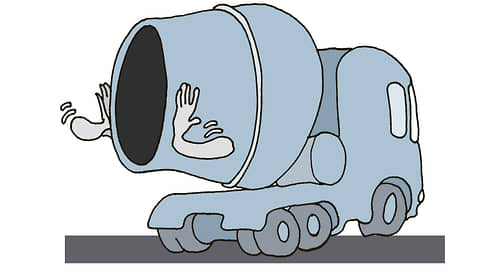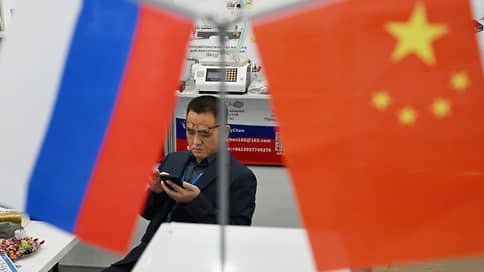Soyuz -chain proposed to exclude cement from compulsory exchange trade

Cement holdings through the industry union are trying to convince the authorities to abandon plans to establish a standard for mandatory sale on the exchange up to 25% of their products. The measure is aimed at increasing market transparency and reducing value risks. But in the end, it can create problems for business due to the volatility of exchange prices, increasing the competition and consumer’s unpreparedness to participate in the auction.
The Soyuz -chain Association (unites large cement holdings) turned to the Ministry of Industry and Trade, the Ministry of Economy, the Ministry of Economy and the FAS with a proposal to exclude cement from goods for compulsory exchange trading, told Kommersant in the organization. They clarified that a series of letters with an identical position has been sent from the end of March. The FAS confirmed the receipt of the appeal, explaining that it would be considered in the prescribed manner. The Ministry of Construction explained that the preparation of an official review of the initiative is now being prepared, taking into account all positions and proposals. The Ministry of Economy clarified that the Ministry of Finance is dealing with the issue. In the Ministry of Industry and Trade, Kommersant did not quickly respond.
The appeal of Soyuz -cement is a reaction to the initiative of the State Duma Committee on the financial market.
At the end of March, the parliamentarians, according to Interfax, sent a bill to agree on relevant ministries and departments, which gives the government the right to establish an obligatory share of sales on the exchange of individual goods. It will be up to 25% of the average volume of their production or sales. The measure is required for the formation of national price indicators. The proposed list of goods includes 16 different categories, including building materials. Failure to fulfill obligations involves a fine of up to 500 thousand rubles. For legal entities, they specify in Soyuz -chain.
The proposal immediately met a negative reaction from the business. In April, the Russian Union of Industrialists and Entrepreneurs turned to Deputy Prime Minister Dmitry Grigorenko with a request to adjust the bill, abandoning the fixation of the obligatory share and the list of goods in it. The measure implies a retreat from the principles of freedom of the contract and was not discussed with the business community, the organization noted.
The mechanism of mandatory sale at the auction of part of the goods has been discussed in Russia since 2022. Initially, the Ministry of Finance made the initiative. In the context of building materials, she again sounded at the beginning of the year. Then the Ministry of Construction spoke in favor of the mandatory implementation on the exchange at least 10% of the basic materials of large manufacturers (See “Kommersant” from January 15). Alexander Pleteshkov, Deputy Head of the Building Material Department of the St. Petersburg Exchange, explains that the exchange provides transparent trading conditions that are not characteristic of bilateral transactions. This allows you to get a tool to reduce price risks. The expert calls gasoline the most developed stock market market: 30% of the volume of supplies to the domestic market are sold at the auction.
The Soyuz -cement suggests that the standard for mandatory implementation will create risks for manufacturers.
Consumers, according to the organization, are often not interested in buying cement on the exchange. This will require additional costs for attracting and training specialists. 90% of cement are sold within the framework of direct agreements, the press service of Cemros explained. Alexander Pleshkov is sure that the conclusion to the exchange itself will not create a financial burden. “The fees and other costs amount to less than 10 rubles. per ton of cement, with an average cost of 5 thousand rubles. per ton, that is, about 0.2%, ”he calculated.
But cement is a seasonal product, the demand for which in the spring and summer differs many times, this will adjust the sport exchange prices, explains the managing partner of the SME Vladimir Guz. Long -term contracts, according to him, allow you to avoid these fluctuations. The expert draws attention to the fact that if prices on the exchange and within the framework of the agreements are significantly different, this can also cause issues of regulatory authorities. The Cemros notes that the difference in price can also stimulate the activity of resellers who will acquire cement on the exchange and subsequently realize it more expensive.
Consumers themselves are still looking at the initiative in different ways.
The President of the Basic Group of Companies, Alexander Ruchev, calls bidding the only mechanism that allows you to see the honest cost of products. “Due to the transparency of the mechanism with a high degree of probability, the cost of the material will be lower,” he said. Although the commercial director of the « Glavstroy Region » Alexei Artoshin is convinced that in mass construction the key advantage is the predictability of prices. Exchange fluctuations, in his opinion, are risks.
The Cemros is convinced that cement in principle cannot be attributed to the category of exchange goods due to a limited shelf life (45-60 days from the date of shipment), the need to strict compliance with storage and transportation standards. The Soyuz -chain is called the risk factor and the possible access to the exchange of foreign manufacturers. In the short term, it can lead to a decrease in prices by increasing competition, but in a long-term one-to lead to the closure of plants due to a higher cost production in Russia.
Cementum pay attention to the difficulties with the transportation of cement: the price of logistics can be up to 50% of the cost of products, so it will be difficult to determine the objective value within the framework of exchange trading. The transition to them, according to the company, can aggravate a difficult situation with a shortage of a carriage park. There they also pay attention to the variety of cement brands: it is often important for the consumer to get the products of a particular manufacturer, which cannot be provided at the auction.




/s3/static.nrc.nl/wp-content/uploads/2025/05/15161003/web-1505CUL_songfestival3.jpg)


